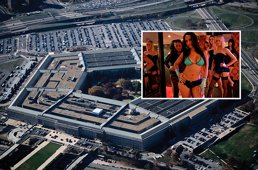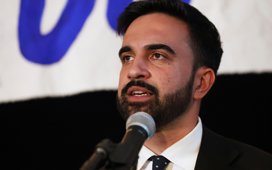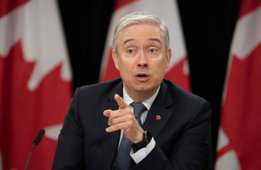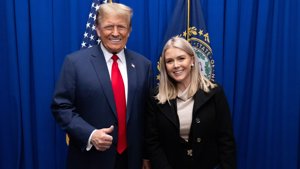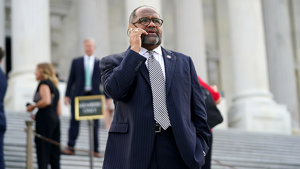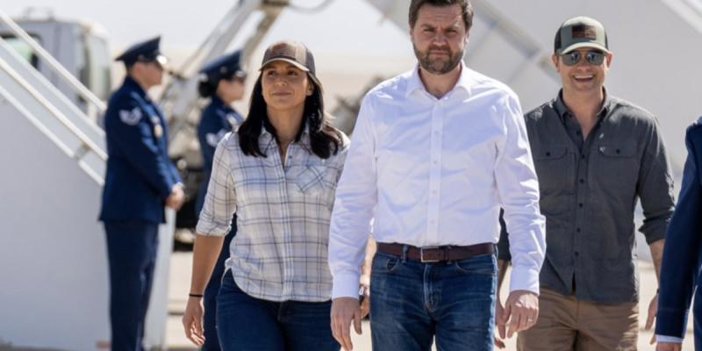
Vance Defends Gabbard’s Role Amid Trump-Iran Tensions
Vice President Vance calls DNI Gabbard “essential” amid Trump’s remarks on Iran’s nuclear threat and policy tensions.
Vance Affirms Gabbard’s Value as Administration Faces Iran Standoff
Vice President JD Vance has publicly defended Director of National Intelligence Tulsi Gabbard’s position in the Trump administration, describing her as an “essential member” of the team. Vance’s comments follow President Donald Trump’s recent dismissal of Gabbard’s Senate Intelligence Committee testimony about Iran’s nuclear ambitions, in which she asserted that Iran was not currently building a nuclear weapon.
“DNI Gabbard is a veteran, a patriot, a loyal supporter of President Trump and a critical part of the coalition he built in 2024,” Vance stated. He credited Gabbard with helping keep America safe from foreign threats and emphasized her ongoing contributions to national security. Vance and Gabbard have long represented the non-interventionist wing of the administration, frequently advocating for a U.S. foreign policy that limits military involvement overseas. In contrast, Secretary of State Marco Rubio and other Cabinet members have historically supported a more assertive approach to foreign conflicts.
Despite policy differences within the team, Vance expressed confidence in President Trump’s judgment as the administration weighs its response to Iran. “Whatever he does, that is his focus,” Vance said of Trump, stressing that any military action would serve the interests of the American people. Vance’s assurances came after Trump dismissed Gabbard’s earlier assessment about Iran’s nuclear intentions, saying, “I don’t care what she said. I think they were very close to having one.”
Aligning Intelligence and White House Policy
Gabbard’s March testimony before the Senate Intelligence Committee had concluded that Iran’s Supreme Leader Khamenei had not authorized a nuclear weapons program since 2003, though she acknowledged that Iran’s uranium stockpile was at an unprecedented level for a state without nuclear weapons. She warned that Iran would likely continue efforts to resist Israel and press for a U.S. withdrawal from the region, supporting proxy actors across the Middle East.
The administration’s internal debate over Iran’s nuclear threat drew further attention after Gabbard’s June 10 video warning that the world was “on the brink of nuclear annihilation.” While media reports suggested a rift between Gabbard and Trump, White House officials, as well as Gabbard’s deputy chief of staff, dismissed these claims, stating that the president and his intelligence chief are aligned in their assessments.
Despite not being present at a recent Camp David strategy session, Gabbard was in the Situation Room at the White House on Tuesday as the president monitored developments in the Middle East. An official from the Office of the Director of National Intelligence clarified that Gabbard’s statements regarding Iran’s nuclear capabilities are consistent with the president’s position. “Just because Iran is not building a nuclear weapon right now doesn’t mean they aren’t ‘very close’ as President Trump said on Air Force One,” the official noted, emphasizing the congruence between the two leaders’ views.
As President Trump considers possible U.S. military action, he remains noncommittal about specific plans, telling reporters, “Yes, I may do it. I may not do it. I mean, nobody knows what I’m going to do. I can tell you this, that Iran’s got a lot of trouble, and they want to negotiate.” Trump lamented missed opportunities for diplomacy, reflecting on recent escalations and the challenges facing the region.
While policy divisions persist within the administration, officials are working to maintain a unified approach as they address the rapidly evolving threat landscape. The interplay between intelligence assessments and executive decision-making will continue to shape U.S. policy in the Middle East as the administration navigates rising tensions with Iran.

